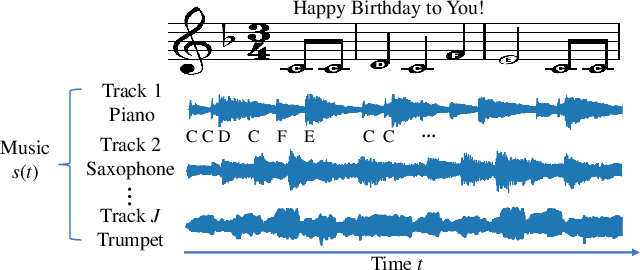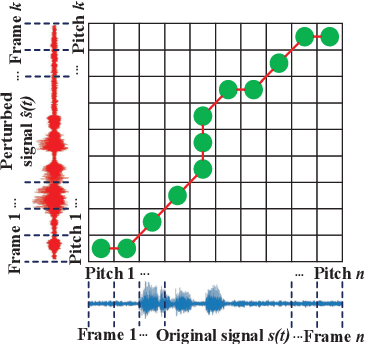Perception-Aware Attack: Creating Adversarial Music via Reverse-Engineering Human Perception
Paper and Code
Jul 26, 2022



Recently, adversarial machine learning attacks have posed serious security threats against practical audio signal classification systems, including speech recognition, speaker recognition, and music copyright detection. Previous studies have mainly focused on ensuring the effectiveness of attacking an audio signal classifier via creating a small noise-like perturbation on the original signal. It is still unclear if an attacker is able to create audio signal perturbations that can be well perceived by human beings in addition to its attack effectiveness. This is particularly important for music signals as they are carefully crafted with human-enjoyable audio characteristics. In this work, we formulate the adversarial attack against music signals as a new perception-aware attack framework, which integrates human study into adversarial attack design. Specifically, we conduct a human study to quantify the human perception with respect to a change of a music signal. We invite human participants to rate their perceived deviation based on pairs of original and perturbed music signals, and reverse-engineer the human perception process by regression analysis to predict the human-perceived deviation given a perturbed signal. The perception-aware attack is then formulated as an optimization problem that finds an optimal perturbation signal to minimize the prediction of perceived deviation from the regressed human perception model. We use the perception-aware framework to design a realistic adversarial music attack against YouTube's copyright detector. Experiments show that the perception-aware attack produces adversarial music with significantly better perceptual quality than prior work.
 Add to Chrome
Add to Chrome Add to Firefox
Add to Firefox Add to Edge
Add to Edge